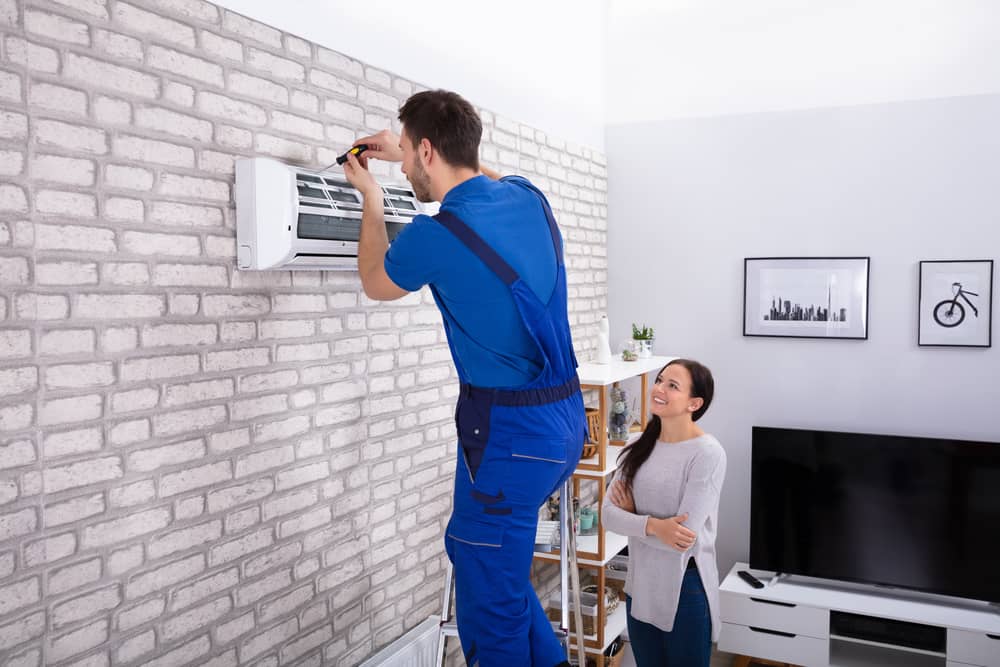Selling a home is a demanding process that requires you to be proactive. It would help if you went beyond deep cleaning the rooms and walls to ensure the home is structurally and mechanically sound as it appears. Whether you’re listing the property for sale or not, here are some house issues to correct for an impressive inspection report.
Poor Surface Grading
Grading and drainage issues go hand in hand, and they may go unnoticed for a long time. As such, if you don’t implement proper surface grading, water may flow toward your home, penetrating through the basement and crawlspace. As such, proper grading and drainage fixes are necessary regardless of whether your home sits on the mountainside or a flat lot.
If you don’t look into this issue before an inspection, you may get a shocking report indicating your home suffers severe water damage. When the problem goes unnoticed for long, it triggers wetness on the crawlspace and may even shift the foundation. Professional plumbers can help you assess the situation and do the necessary repairs before doing an inspection.
Faulty Electrical Wiring
Most people live in homes with faulty electrical wiring, although they do not notice until something happens. Sadly, electrical problems are responsible for a considerable number of fires experienced in residential and commercial settings. So if you’ve not inspected your electrical wiring in a while, you should do it ASAP.
Home inspections offer special attention to a home’s electrical system to ascertain everything is safe. Do not wait until you have a major electrical problem to fix the issue; do it before a home inspection, or negative remarks will dominate your inspection report. Here are signs that your electrical wiring may be flawed:
• Constant circuit breaker trips
• Flickering or dimming light
• Frayed wiring
• Burning smell
• Tangled wiring
Damaged Roofs
A roof is a critical element of every home, although it is often the most neglected. Home inspectors understand the essence of maintaining your roof properly, and that’s why they must scrutinize it. What you may not know is that a faulty roof does not only reveal through leaks.

You may be living under an improperly installed roof with loose, curling, cracking, or missing shingles, which is very risky. Unfortunately, most home buyers quickly walk away when the home inspection report indicates roofing issues because they are expensive to repair. To be on the safe side, call in your contractor to evaluate the roof for the following signs of damage:
• Dirty, blocked soffits
• Mold accumulation
• Rusted gutters
• Mold on the external walls
• Hailstorm damage
Presence of Asbestos
Asbestos was a common building material in the eighties, preferred for its excellent heat insulation abilities. If your home is over forty years, most probably, the builder used asbestos to enhance its structural strength. Unfortunately, later on, research showed that asbestos has adverse health effects on human beings.
Home inspectors evaluate buildings for materials containing asbestos, which can scare potential buyers if it features negatively on your inspection report. If your home has asbestos, consider relocating and hire remediation services, as it is also likely to affect your health. Although undisturbed asbestos isn’t harmful, most buyers will likely avoid a home with its elements.
Mold
When you mention mold, most people think of an unsightly black substance with a musty smell. While it is true, it’s also essential to understand that mold doesn’t always form in plain view. Unfortunately, if exposed to mold, seen or unseen, you may develop respiratory and skin problems.
Even if you don’t see any signs of mold in your home, it may be hiding in leaky areas and on any water-soaked surfaces. Mold removal can be stubborn and expensive, a burden that most potential homebuyers will not wish to bear. But, by removing mold beforehand, you will significantly influence your home inspection report.
Pest Infestation
Termites, rodents, roaches, and other bugs are common in most homes. Surprisingly, your home may be heavily infested and internally damaged without your knowledge because most bugs are good at hibernating. If you suspect you may be having pests, eliminate them before home inspectors check into your property.

Some pests like termites can go through the walls and beams, causing a lot of unseen damage. Sometimes you may not even know about it until you see the unpleasant remarks on your home inspection report. Therefore, it’s imprudent to wait until it’s too late to examine your home, as it may cost you a lot to repair the affected areas.
If you’re planning to sell your home, it’s always a good idea to fix as much as you can. Although it can be a lot of work, ensure you address everything in your home before your home inspector arrives.














